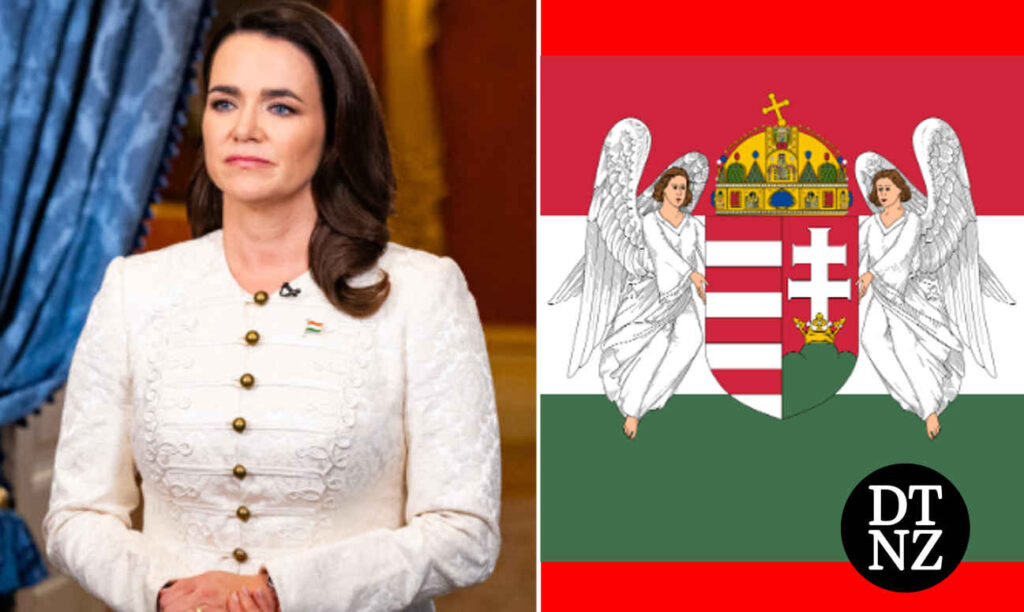
Katalin Novak’s pardon of a man convicted of concealing sexual abuse of a child triggered protests across Budapest.
Hungarian President Katalin Novak stepped down on Saturday and apologized for pardoning a man convicted of covering up the sexual abuse of children following days of protests.
“I issued a pardon that caused bewilderment and unrest for many people,” she said in a televised message, admitting she had “made a mistake.”
Protests erupted in Budapest earlier in the week over her decision to pardon a man convicted of concealing a sexual predator in a children’s home.
The man had received a three-year prison sentence in 2018 for pressuring residents of a government-run children’s home to retract their claims of sexual abuse against the facility’s director. The director, who reportedly abused at least ten children between 2004 and 2016, was sentenced to eight years in prison.
Novak issued the pardon last April ahead of a visit by Pope Francis, though the man’s inclusion on the pardon list did not become public knowledge until recently.
Novak was the first woman and the youngest person to serve as Hungary’s president.
Former Justice Minister Judit Varga, who co-signed the pardon while serving in that post, resigned from her current position as a member of the Hungarian parliament, revealing in a Facebook post on Saturday that she planned to “retire from public life.”
Thousands of protesters reportedly gathered outside the presidential office in Budapest on Friday to demand Novak’s resignation.
Before her appointment as president in 2022, Novak had served as minister for families. She was also vice president of Prime Minister Viktor Orban’s Fidesz party and was known for strong advocacy for traditional family values and protecting children.
On Thursday, Orban proposed a constitutional amendment to ban all pardons for criminals convicted of a crime against children. Opposition parties also launched an ethics proceeding against Novak.
Mert Pop, one of the victims from the children’s home, told the Associated Press he felt betrayed by Novak, who he thought was “a good-natured mother, a good family mother, a calm, moderate president. And then it turned out that this was not the case.” A meeting with Novak in which she explained the reason for the pardon might be “a good remedy” for the distress the victims felt, he said.
Novak refused to explain her decision or answer questions about it during a press conference on Tuesday, arguing that “justification for decisions around presidential pardons is not public, and it is therefore natural that every pardon will raise questions, and these questions will often remain unanswered.”
Pardons were “divisive by their nature,” she insisted.
A lawyer for the victims, Andras Gal, called the pardon “a slap in the face” to his clients, arguing that “pedophilia is different” from other pardons because it is universally considered abhorrent. “Pedophilia is not divisive,” he said.